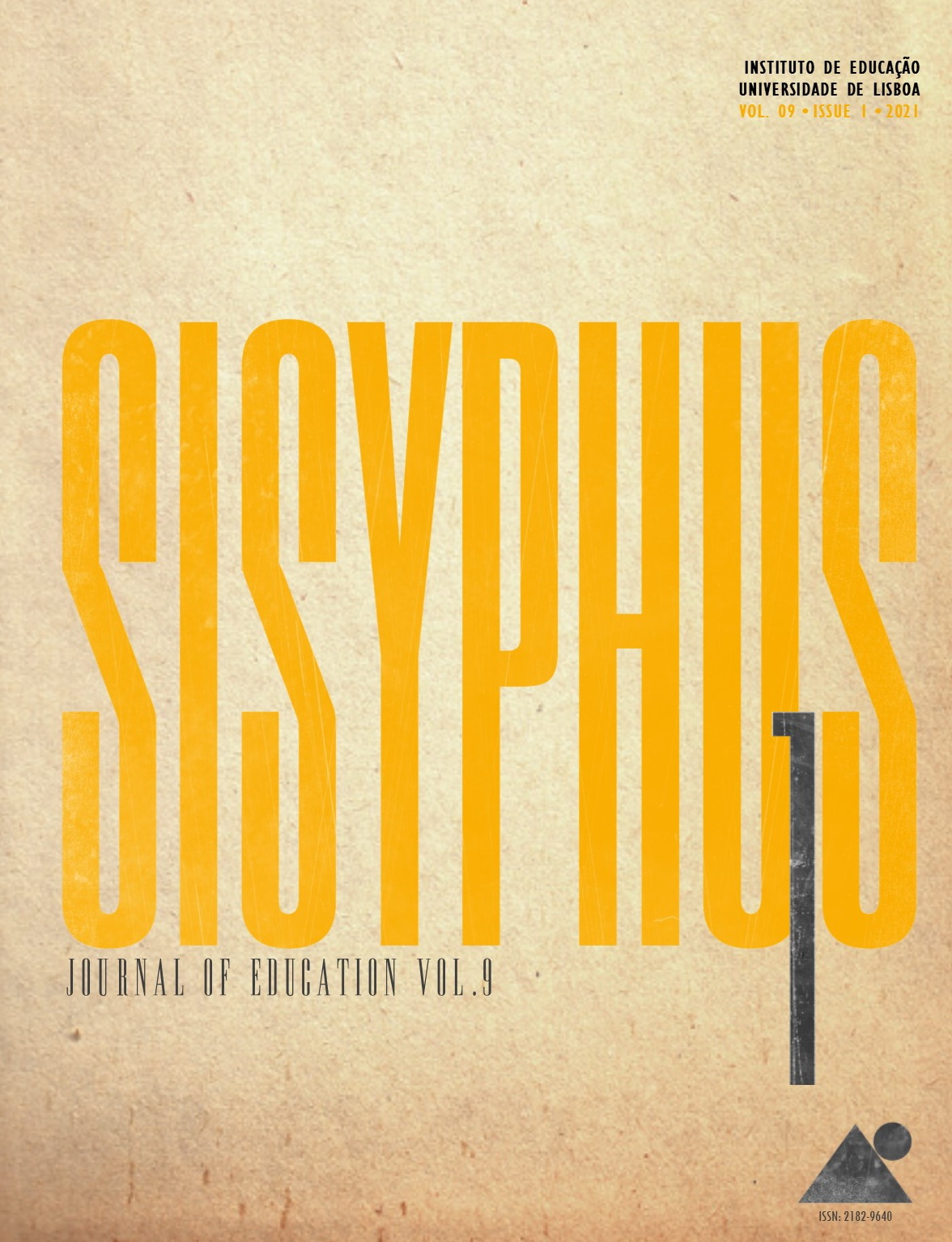TV and Radio Broadcasting Classes
Primary School Teachers Continuing Professional Development
DOI:
https://doi.org/10.25749/sis.23404Keywords:
continuing professional education, tv and radio broadcasting classes, primary teacher, AngolaAbstract
This action approach study analysed how TV and Radio broadcasting classes influenced primary school teachers continuing professional development. During the COVID-19 pandemic, the Angolan Ministry of Education offered its primary school teachers an opportunity to attend a distance continuing professional development activity through the Angolan Public Television (TPA) and Angolan National Radio (RNA). The study concluded that TV and Radio broadcasting classes' practical aspects improved significantly primary teachers’ procedures, such as content organization, content contextualization, and following classroom methodological approach. In addition to that, the study also showed that teacher support and guidance allowed primary school teachers to reflect on their pedagogical skills.
Downloads
References
ALAM, A., & TIWARI, P. (2020). Putting the ‘learning’ back in remote learning. Issue brief, Policies to uphold effective continuity of learning through COVID-19. New York: Office of Global Insight and Policy, UNICEF. Retirado de: https://www.unicef.org/globalinsight/sites/unicef.org.globalinsight/files/2020-06/UNICEF-Global-Insight-remote-learning-issue-brief-2020.pdf
ARCHER, J., CANTRELL, S., HOTTZMAN, S. L., JOE, J. N., TOCCI, C. M., & WOOD, J. (2016). Better feedback for better teaching: A practical guide to improving classroom observations. San Francisco, CA: Jossey-Bass.
BAXE, H., FERNANDO, M., & PAXE, I. (2016). Ensino Primário em Angola: Formação, actuação e Identidade dos professores. Luanda, Angola: Rede Angola.
BURNS, M. (2011). Distance Education for Teacher Training: Modes, Models, and Methods. Washington, DC: Education Development Center, INC. Retirado de: http://idd.edc.org/resources/publications/modes-models-and-methods
DANIELSON, C., & MCGREAL, T.L. (2000). Teacher evaluation to enhance professional practice. Alexandria, VA: ASCD [e-book].
Decreto Presidencial n.º 82, de 26 de Março de 2020. Medidas de excepção e temporárias para a prevenção e o controlo da propagação da pandemia covid-19. Luanda, Angola: Diário da República.
DHAWAN, S. (2020). Online learning: A panacea in the time of covid-19 crisis. Journal of Educational Technology, 49(1), 5-22. doi: 10.1177/0047239520934018
HOBOLD, M. S. (2018). Desenvolvimento professional dos professors: Aspectos conceituais e práticos. Práxis Educativa, 13(2), 425-442. doi: 10.5212/PraxEduc.v.13i2.0010
KARLBERG, M., & BEZZINA, C. (2020). The professional development needs of beginning and experienced teachers in four municipalities in Sweden. Professional Development in Education. doi: 10.1080/19415257.2020.1712451
KLINK, M. V., KOOLS, Q., AVISSAR, G., WHITE, S., & SAKATA, T. (2017). Professional development of teacher educators: what do they do? Findings from an explorative international study. Professional Development in Education, 43(2), 163-178. doi: 10.1080/19415257.2015.1114506
KÖNIG, J., JÄGER-BIELA, D., & GLUTSCH, N. (2020). Adapting to online teaching during covid-19 schools closure: Teacher education and teacher competence effects among early career teachers in Germany. European Journal of Teacher Education, 43(4), 608-622. doi: 10.1080/02619768.2020.1809650
LODICO, M. G., SPAULDING, D. T., & VOEGTLE, K. H. (2010). Methods in educational research: From theory to practice. (2nd Edition). San Francisco, CA: Jossey-Bass.
MINISTÉRIO DA EDUCAÇÃO. (2009a). Capacitação para professores primários: Relatório (NO.4). Luanda, Angola: MED.
MINISTÉRIO DA EDUCAÇÃO. (2009b). Educação para todos. Luanda, Angola: MED.
MINISTÉRIO DA EDUCAÇÃO. (2020). Plano de emergência do sector da educação para resposta à Pandemia da covid-19. Luanda, Angola: MED.
MORGADO, J. (2004). Qualidade na educação: Um desafio para os professores. (1ª Edição). Lisboa, Portugal: Editorial Presença.
NAÇÕES UNIDAS. (2020). Policy brief: Education during covid-19 and beyond. Retirado de: https://www.un.org/development/desa/dspd/wpcontent/uploads/sites/22/2020/08/sg_policy_brief_covid-19_and_education_august_2020.pdf
OYEDOTUN, T. D. (2020). Sudden change of pedagogy in education driven by COVID-19: Perspectives and evaluation from a developing country. Research in Globalization, 2. doi: https://doi.org/10.1016/j.resglo.2020.100029
PETERSON, P.D. (2003). O professor do ensino básico. Lisboa, Portugal: Instituto Piaget.
PIMENTA, S.G. (2011). Didáctica e formação de professores: Percursos e perspectivas no Brasil e em Portugal. (6ª Edição). São Paulo, Brasil: Cortez.
PRÍNCEPE, L., & ANDRÉ, M. E. D. A. (2018). Factores facilitadores e dificultadores do desenvolvimento profissional de professores iniciantes: Uma análise das condições de trabalho. Revista de Estudos Aplicados em Educação, 3(6), 3-15. doi: https://doi.org/10.13037/rea-e.vol3n6.5739
ZAU, F. (2012). Do acto educativo ao exercício da cidadania: Compilação de artigos e comentários publicados no jornal de Angola, 2007-2012. (1st Edition). Luanda, Angola: Mayamba
Downloads
Published
Issue
Section
License
Copyright (c) 2021 Sisyphus — Journal of Education

This work is licensed under a Creative Commons Attribution-NonCommercial 4.0 International License.
Copyright (c) belongs to Sisyphus - Journal of Education. However, we encourage issued articles to be published elsewhere, provided that Sisyphus authorization is asked for and that authors integrate our original source citation and a link to our website.
Author Self-Archiving Policy
Author(s) are permitted to self-archive the final published version in institutional or thematic repositories, and in their personal or institutional websites.
DORA Signer
The Instituto de Educação da Universidade de Lisboa, Sisyphus' Publisher, is a San Francisco Declaration on Research Assessment signer.






